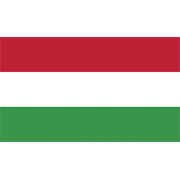Fiscal subject related
The regulation targets traders involved in the grocery sector under the Standard Industrial Classification of Activities: 4711: Mixed retail trade in grocery stores, whose annual net turnover exceeds HUF 1 billion. This includes various types of establishments, from hypermarkets to smaller stores. The regulation applies to the display and sale of prepackaged products such as food items, detergents, and fabric.
Thus, the scope of the government decree covers prepacked products, including, for example, boxed biscuits, chocolate bars, ice cream, detergents, fabric softeners, etc. Therefore, the regulations to be presented cover not only prepacked foods but also other prepacked products.
The core requirement under this legislation is the mandate for traders to provide clear information to consumers regarding any changes in product packaging, specifically if new smaller pack sizes are introduced in the market. The requirement details that such changes must be communicated visibly in the store where the products are sold. For larger stores (e.g., hypermarkets), this information must be displayed at every entrance, whereas smaller stores should have it at a conspicuous spot near the entrance. Additionally, information should be displayed next to the product itself in a prominent manner.
Based on the mentioned act itself, traders who fall under its scope in Hungary are required to:
- Display information for two months starting from the introduction of changed packaging sizes,
- Use specific sizes and formats for information sheets as detailed in the regulation (e.g., A3 size at store entrances, smaller tags next to the product itself),
- continue displaying information if they keep selling products introduced between July 2023 and February 2024 that had size changes.
This regulation aims to enhance transparency and maintain the consumer's ability to make informed decisions amidst rising concerns about inflation and product value reduction.
Other news from Hungary
How may the customer application used alongside the new e-cash register in Hungary allow for more flexibility for both sellers and customers?
 Hungary
Author: Tara Nedeljković
Hungary
Author: Tara Nedeljković
Hungary’s new e-cash registers, paired with customer applications, aim to enhance flexibility for both sellers and customers by offering advanced features like preset payment methods and automated receipt preferences. Customers can define tipping amounts and locations, while sellers gain options to deliver e-receipts enriched with detailed product information, replacing traditional paper receipts. Read more



Hungary strengthens alcohol advertising regulation that impacts traders selling these products.
 Hungary
Author: Tara Nedeljković
Hungary
Author: Tara Nedeljković
Hungary has introduced stricter regulations on alcohol advertising, prohibiting such ads near health and educational institutions, in store windows, and areas visible from public places. The updated law also bans advertising alcoholic beverages in theaters before 8 p.m., on children’s products, and near programs targeted at minors, reinforcing existing measures against ads harmful to youth. Retailers must comply with these changes by January 1, 2025, which may necessitate adjustments to their marketing and advertising strategies. Read more



New document was uploaded: Recorded webinar: E-invoicing for Global Retailers
If you are struggling with complex e-invoicing implementations across multiple countries, and if you are concerned about mounting costs, potential delays, or compliance risks, our webinar will help you to learn how global retailers can streamline e-invoicing efficiently! With countries worldwide mandating e-invoicing, international retailers face unique challenges adapting to new regulations acros... Read more



A proposal for VAT in the digital age (ViDA) has been approved.
The EU's Economic and Financial Affairs Council (ECOFIN) has approved the Value Added Tax in the Digital Age (ViDA) proposal, aiming to modernize VAT rules and combat tax fraud. ViDA introduces key measures like Digital Reporting Requirements (DRR), VAT collection for the platform economy, and expanded Single VAT Registration, with implementation planned from 2027 to 2035. Businesses must prepare... Read more



EU to protect domestic e-commerce sellers with a cross-border tax reform
As online shopping continues to grow, the European Union is planning to implement new regulations to protect local e-commerce sellers. One significant change affects consumers who shop on international platforms like Temu or AliExpress. The EU has already taken some steps at the first sign of growing foreign e-commerce sellers, and since July 1, 2021, all goods entering the EU, regardless of their... Read more



EU VAT Validation Tool
One way to validate VAT numbers in the EU is the VAT Information Exchange System (VIES), which is a crucial tool for businesses operating within the European Union. Owned by the European Commission, VIES is a search engine that retrieves data from national VAT databases to verify VAT numbers. Here’s a detailed look at how VIES works and its significance. How VIES Works When a search is made usi... Read more



Hungary's deposit return scheme now entering a new phase
 Hungary
Author: Tara Nedeljkovic
Hungary
Author: Tara Nedeljkovic
Hungary started its environmental transformation with the launch of its deposit return system (shortened as DRS) starting this year. From this month, July 2024, Hungary entered the next phase of its DRS, with the end of its six-month transition period, during which time drink producers could place on the market beverage packaging both with and without deposit markings Read more


